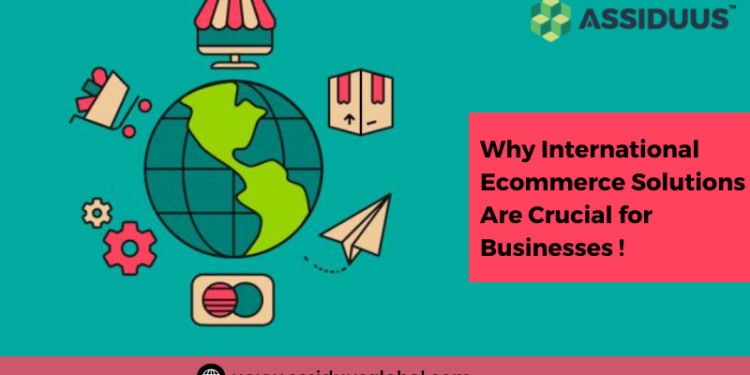In today’s globalized world, businesses of all sizes have access to customers around the world, thanks to the internet and global ecommerce platforms. Ecommerce has become a key driver of growth for businesses of all sizes, offering unparalleled opportunities for expansion and increased revenue. However, to truly take advantage of this global marketplace, businesses need international ecommerce solutions that can help them navigate the complexities of cross-border trade.
What Is a Global Ecommerce Platform?
A global ecommerce platform is an online marketplace that allows businesses to sell their products or services to customers all over the world. These platforms typically provide a range of services and tools to help businesses manage their online stores, including payment processing, order management, and marketing and advertising tools. Some of the most popular global ecommerce platforms include Amazon, eBay, Alibaba, and Shopify.
Why Do You Need International Ecommerce Solutions?
Expanding your business into international markets can be incredibly lucrative, but it also comes with a range of challenges. From language barriers to cultural differences, there are many factors to consider when selling to customers in other countries. This is where international ecommerce solutions come in.
By using a global ecommerce platform with international ecommerce solutions, businesses can overcome many of the barriers to international trade. These solutions can help you:
Reach a Global Audience: With international ecommerce solutions, you can expand your customer base to include people from all over the world. This can help you reach new markets and tap into new revenue streams.
Streamline Your Shipping and Fulfillment: International ecommerce solutions can help you manage the complexities of shipping and fulfillment when selling to customers in other countries. This includes managing customs regulations, calculating duties and taxes, and choosing the right shipping carriers and methods.
Offer Multilingual Support: Language barriers can be a major hurdle when selling to customers in other countries. International ecommerce solutions can help you overcome this barrier by offering multilingual support and translation services.
Localize Your Marketing: To succeed in international markets, businesses must adapt their marketing strategies to the local culture and preferences. International ecommerce solutions can help you tailor your marketing efforts to specific regions and demographics.
Manage Currency and Payment Processing: International ecommerce solutions can help you manage currency conversions and payment processing when selling to customers in other countries. This can help you avoid costly mistakes and ensure that your customers can easily and securely make purchases.
Choosing the Right Global Ecommerce Platform
When it comes to choosing a global ecommerce platform, there are a few key factors to consider:
Features and Tools: Look for a platform that offers the features and tools you need to manage your online store, including payment processing, order management, and marketing and advertising tools.
Global Reach: Make sure the platform has a strong global presence and can help you reach customers in the countries where you want to sell.
Multilingual Support: If you plan to sell to customers in other countries, make sure the platform offers multilingual support and translation services.
Shipping and Fulfillment: Look for a platform that can help you manage the complexities of shipping and fulfillment when selling to customers in other countries.
Cost and Fees: Consider the cost of using the platform, including any fees for payment processing, order management, and other services.
Conclusion
Expanding your business into international markets can be an incredibly rewarding experience, but it requires careful planning and the right tools and resources. By using a global ecommerce platform with international ecommerce solutions, you can overcome the barriers to international trade and reach customers all over the world. When choosing a platform, make sure to consider factors such as features and tools, global reach, multilingual support, shipping and fulfillment, and cost and fees.
Also Read: Key Features of a Comprehensive Supply Chain Management Solution!





















































